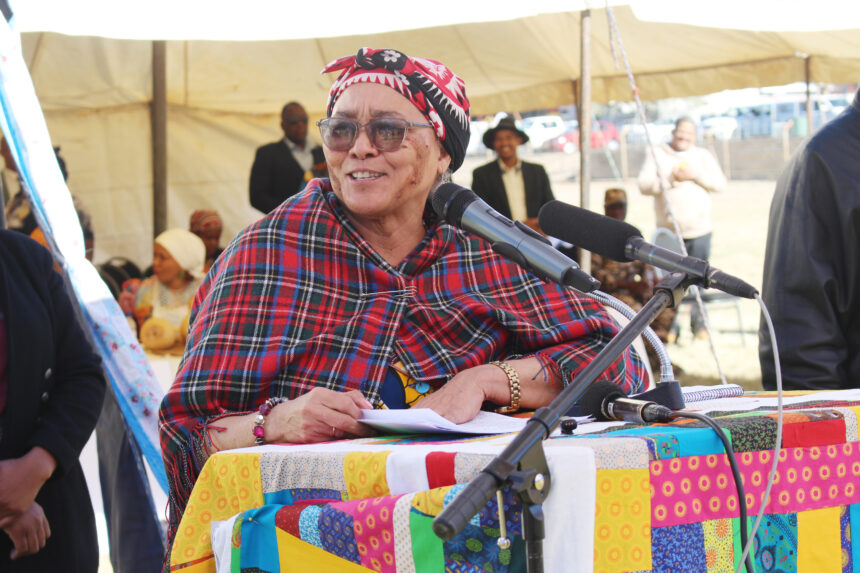KEETMANSHOOP – Vice President Lucia Witbooi has urged traditional leaders to guard against division within traditional authorities and avoid succession-related disputes.
She said these tendencies could hamper growth, stifle progress and arrest development in traditional communities and the country at large.
She made this clarion call when delivering the keynote address at the 6th celebration of the Nama Cultural Festival in the southern town last weekend.
“Therefore, moving forward, unity of purpose is the only key to bring about sustainable development in our country,” she stated.
Witbooi added that time has come that the leaders resolve their differences amicably and work harmoniously under the umbrella of cultural unity with a view to strive for social progress, growth and development.
“Today, we face a common enemy in the form of poverty, inequality and unemployment. To overcome these social challenges, it is imperative that we come together as an integrated, reconciled and unified people,” Witbooi advised the audience. Addressing the youth, she said the onus now lies on younger generations to, in efforts to preserve indigenous dance for future generations, cultivate a spirit of cultural pride and become the transmission belts on which their indigenous music, art and dance are celebrated, maintained and preserved.
Turning her attention to the cultural festival, the politician argued that such platforms are not mere gatherings but rather enablers to help forge a stronger and more resilient nation, anchored in the spirit of nationhood and patriotism under the banner of a stronger One Namibia, One Nation.
She continued: “Let us use these platforms to gather around the celebration of our shared history, traditions and practices, showcasing our unique heritage and promote values which unite us as one people”.
Referring to the the theme for this year’s celebration: ‘Namakhoeda ge – /Gui!nâxasib-tsî ai!gûs /omkhâis !oa’ – which translates to Nama people striving towards progress, growth and sustainability, she commended the organisers of the event for choosing a befitting theme that revitalise Nama people and Namibians at large to strive for growth and sustainability.
In her contribution, Sanet Steenkamp, Minister of Education, Innovation, Sports, Arts and Culture, said the festival is far more than a cultural event.
“It is a sacred reclamation of identity, a celebration of collective memory and an expression of our shared determination to advance towards unity, growth and healing,” she asserted.
The minister added: “The work of reclaiming and preserving our cultural identities is not only a community effort. It is a national imperative”.
Steenkamp said through festivals like this, which demonstrate the ancestral rhythms traditional dancers, truths spoken by elders, creative expressions of artists and the convictions of the youth, the nation can preserve, protect and promote a culture that refuses to be erased.
Also contributing, Nichodima Cooper, executive director of the Namakhoen Network of Heritage Advocacy in Botswana said the festival’s theme resonates profoundly with him, as it underscores the importance of unity in driving progress and growth within our communities.
“This unity is pivotal as we navigate the complexities of preserving our cultural identity while engaging with global platforms,” he added.
Turning attention to the youth present, he informed them that their heritage is not just a relic of the past but a beacon for the future.
He said it is imperative that people take ownership of their narratives, advocate their rights and actively participate in platforms that shape their destiny.



